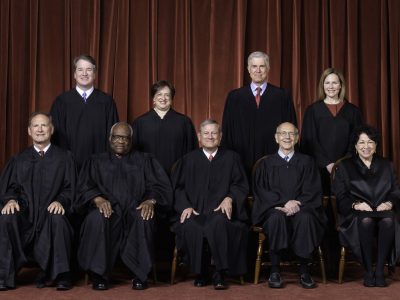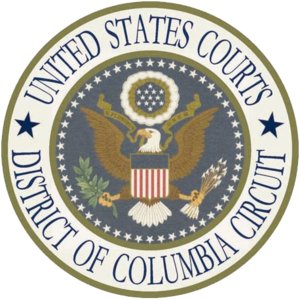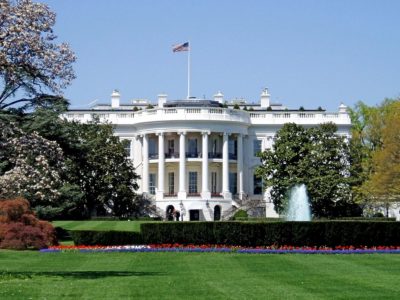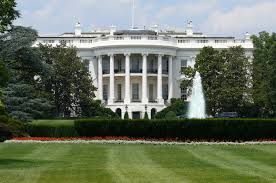Chevron Doctrine
Unprecedented Legal Questions
The climate crisis is unprecedented. So is its legal fallout.
In teaching my class on Climate Law, I’ve been struck by how many new legal questions courts are confronting as a result of the climate crisis. Dealing with these new legal questions is going to put stress on existing legal doctrines and require courts to rethink some basic principles. Unfortunately, the Supreme Court is pushing …
Continue reading “Unprecedented Legal Questions”
CONTINUE READINGMajor Questions About the Major Questions Doctrine
You may not have heard of this doctrine but it’s a big threat to innovative regulations.
Unless you’re deeply immersed in administrative law, you may not have heard of the major questions doctrine. It’s a legal theory that conservative judges have used with increasing rigor to block important regulatory initiatives. The doctrine places special obstacles on agency regulations of issues of “major economic and political significance.” In its initial outing, the …
Continue reading “Major Questions About the Major Questions Doctrine”
CONTINUE READINGLiberal Judges Embrace Textualism
Why are these judges suddenly so enthusiastic about Justice Scalia’s approach to reading statutes?
Two of Trump’s major regulatory efforts were recently thrown out by the D.C. Circuit. The liberal judges who wrote the opinions latched onto a conservative theory called textualism, which was most prominently advocated by Justice Antonin Scalia. While judges in an earlier era tried to interpret Congress’s intent in writing a law, textualists focus solely …
Continue reading “Liberal Judges Embrace Textualism”
CONTINUE READINGRethinking Presidential Administration
Giving the President more control of regulation has been a good thing — up to a point.
Conservatives love to complain about faceless bureaucrats, but blaming bureaucrats for regulations is hopelessly out of date. When Elena Kagan was a professor, she wrote an article called “Presidential Administration.” The article applauded her former boss Bill Clinton for seizing greater control of the regulatory process away from agencies. That trend has accelerated to the …
Continue reading “Rethinking Presidential Administration”
CONTINUE READINGBarrett on Standing & Judicial Deference
Her mentor was Scalia, but her style is more like Souter.
With the help of my research assistant, I’ve collected cases by Judge Barrett dealing with standing issues and deference to administrative agencies. Both topics are very relevant to the environment.al crisis. You really can’t draw firm conclusions about her views on these doctrines, but you can draw conclusions about her style. She sticks close to …
Continue reading “Barrett on Standing & Judicial Deference”
CONTINUE READINGThe Kavanaugh Court and the Environment
A new appointment would make Justice Kavanaugh the swing voter. Here’s what that would mean for environmental law.
A new appointment by Trump would shift the Supreme Court well to the right, making Brett Kavanaugh the swing voter in many cases. Kavanaugh has clear views about the powers of agencies like EPA. With him as the swing voter, the main strategy used by Obama to make environmental progress would be off limits for …
Continue reading “The Kavanaugh Court and the Environment”
CONTINUE READINGHappy Birthday, Chevron Doctrine!
The Chevron doctrine has been a keystone of administrative law. But now it’s under siege.
Thirty-six years ago today, the Supreme Court decided the Chevron case. The case gives leeway to agencies when their governing statutes are unclear or have gaps. It’s probably the most frequently cited Supreme Court opinion ever. But now the Chevron doctrine is under fire from conservatives, who used to be its strongest advocates. Here’s how …
Continue reading “Happy Birthday, Chevron Doctrine!”
CONTINUE READINGThe Conservative Assault on Presidential Administration
Are they afraid of “faceless bureaucrats”? Or Democratic Presidents?
Conservatives are on a campaign to reduce agency discretion. They don’t seem to realize that in today’s world, that really amounts to an attack on presidential power. These days, it’s generally not bureaucrats or even cabinet officers who make the real decisions about regulation. It’s the White House. So the campaign against the administrative state …
Continue reading “The Conservative Assault on Presidential Administration”
CONTINUE READINGPride Goeth Before a Fall
Trump thinks he can tell courts how to interpret NEPA. He’s wrong.
White House has just released its proposed revisions to the rules about environmental impact statements. The White House Council on Environmental Quality (CEQ) simply does not have the kind of power that it is trying to arrogate to itself. The proposal is marked by hubris about the government’s ability to control how the courts apply the …
Continue reading “Pride Goeth Before a Fall”
CONTINUE READINGA Paper Tiger?
Trump is proposing big changes to CEQ regs. But they may not matter.
The Trump Administration is trying to gut the current White House rules on environmental impact statements. Some people view this move as a death blow to an important environmental tool. Here’s what Trump is trying to do and why it may not matter as much as people fear. As to what Trump & Co. are …
Continue reading “A Paper Tiger?”
CONTINUE READING











